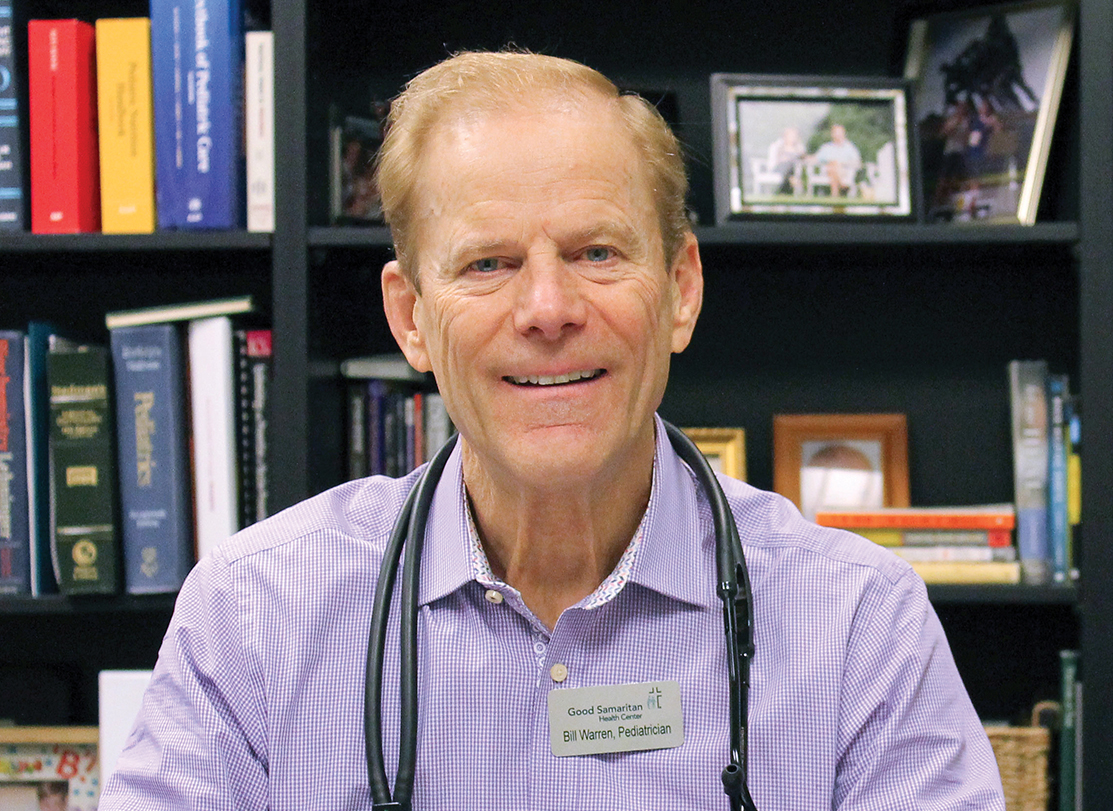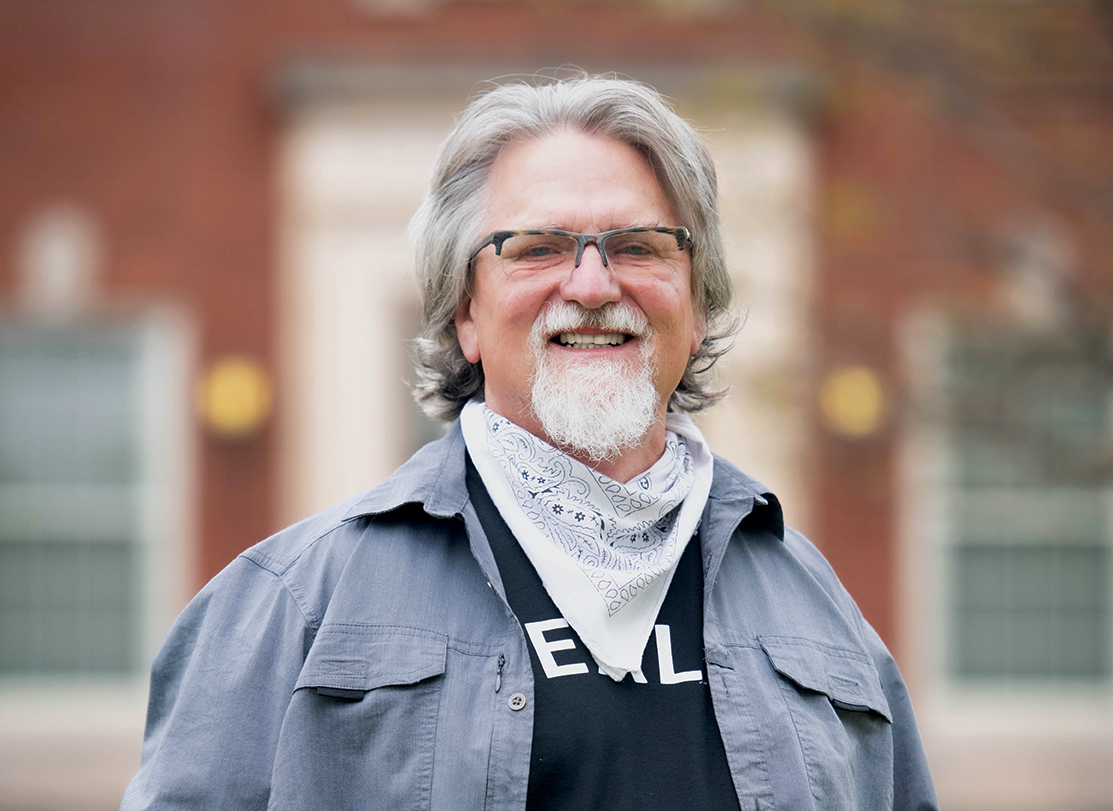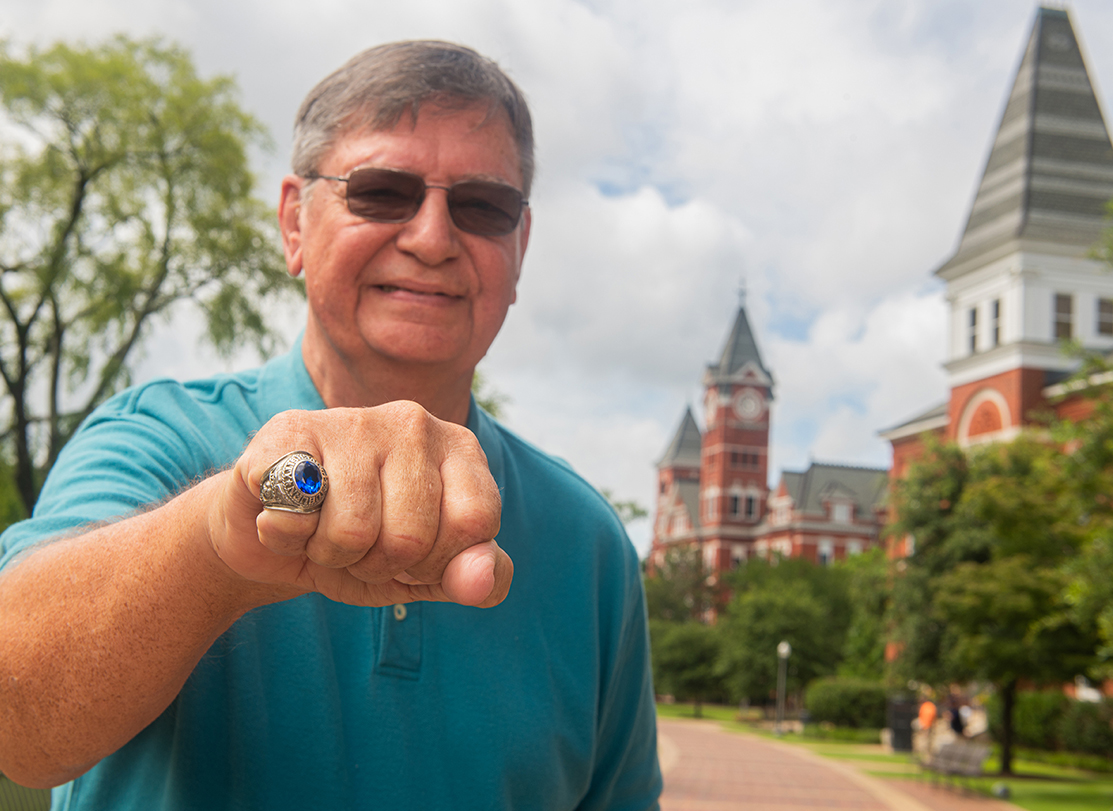Alumni around the world live The Auburn Creed in remarkable ways. Meet three who have dedicated their lives to making an impact on others by serving the underserved and giving hope to the hopeless.
By Kate Asbury Larkin ’21
I believe in the human touch
Bill Warren ’75 gave up a lucrative pediatric practice to provide medical care to the ”least of these.”
Walking humbly with my God
Rick Hagans ’84 has spent his life walking, preaching, rescuing and breathing hope into those who no longer have any.
A spirit that is not afraid
Jack ’71 and Sharon Forbus had no idea their adopted son had autism, but after his diagnosis, these military heroes saw a need and adopted seven more children with special needs.
I believe in the Human Touch
Following graduation from Auburn in 1975, medical school at Emory University in 1979 and postgraduate training in 1982, Bill Warren joined a thriving pediatric group in Sandy Springs, Ga. where he loved being a pediatrician. But deep in his soul, something was missing.
“I was in private practice for 13 years, but the whole time, I was thinking a lot about how to do healthcare and ministry in a mission-type setting,” Warren said. “I had a high school classmate who moved to Memphis and started a place called The Church Health Center, and when I heard what he was doing, it hit me that I needed to be doing exactly the same thing.”
For years, Warren couldn’t shake that feeling. He would drive around looking at locations for a clinic, but he had no idea how—or where—to even begin. In 1994, he learned of an inner-city Atlanta church that ministered to the poor, so he set up a time to meet with the pastor.
“I had no idea the church was running a little medical clinic upstairs,” Warren said. “When I saw it, the light bulb went on in my head and I felt God telling me this is where I needed to be.”
Within eight months, Warren resigned from his pediatric practice and began volunteering at clinics around Atlanta. Volunteering. With no pay. He read everything he could on serving the underserved. He wrote a business plan and created a board of directors.
Warren and his brother, Glenn ’81 purchased a warehouse, renovated it and opened the first Good Samaritan Health Center in January 1999. In 2009, The center purchased property and opened a much larger clinic, offering everything from dental and cardiology, to mental health. When another parcel of land on the same block became available, the center purchased it to create a garden. Food grown and harvested on the premises is not only sold to the patients at a reduced cost, but classes are provided to teach how to prepare the foods in healthy ways. There is also an on-site gym that is owned by the clinic, but run by the YMCA.
Warren, who serves as the CEO but also still practices medicine, said the mission is simple: to care for people who might not have access to a doctor, helping them improve their well-being and just being able to make a difference in their lives.
He has never regretted his decision to follow his heart and believes he is right where he is supposed to be.
“I am just doing what God called me to do,” Warren said. “It’s my way of living out the New Testament.”
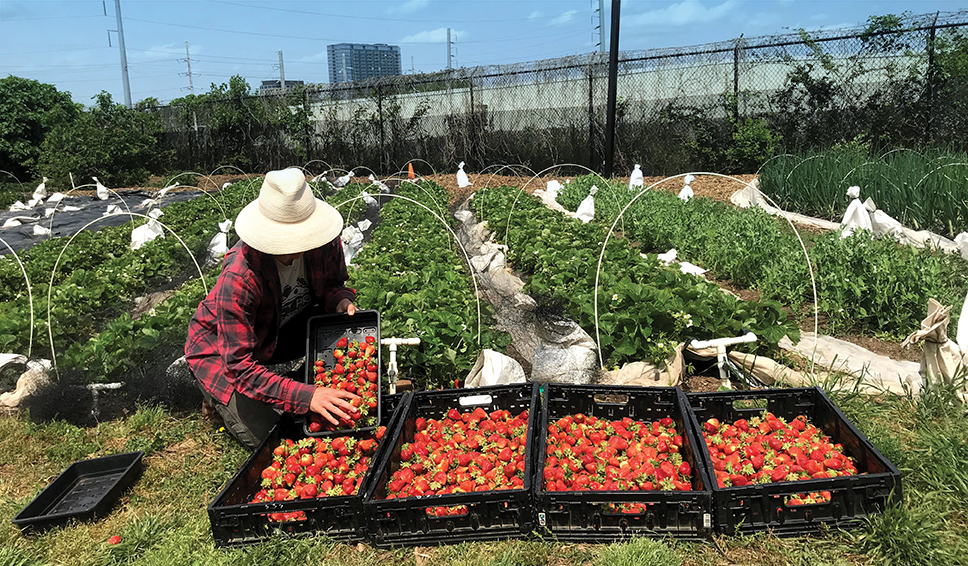
The garden at the Good Samaritan Health Center
Walking humbly with my God
It started in 1977 as Auburn freshman Rick Hagans ’84 walked around campus with dreams—or at least thoughts—of becoming an attorney. But he kept feeling like God was calling him to preach. He quit school after just one quarter and took a job with a construction company digging ditches.
Hagans said that was an epiphany of sorts. It let him know he didn’t want to dig ditches—but still wanted to serve God. He just didn’t have any idea how to do that. On the advice of a friend, he enrolled in a Bible school in Oklahoma.
Other than meeting his wife Kim there, the Bible school wasn’t for Hagans. In the fall of 1980, he returned to Auburn and started a ministry in a room downtown, but so many people showed up on the first night that the police had to shut it down.
So, Rick and Kim rented a house and opened “The Challenge.” In addition to college students, addicts, alcoholics and the homeless began to come hear Rick preach.
“We would get all the leftover hot dogs after Auburn football games, so these men figured out that we would feed them,” Hagans said. “1982 wasn’t a very good season, so we got a lot—a lot—of hot dogs.”
Then, what was bound to happen, did. Some of the men wanted to stay overnight. At first, the Haganses just let them sleep at their house, but they quickly realized the needs of the men were greater than just a hot dog and a pillow.
In the early ’90s, Hagans opened “His Place” in Opelika, a ministry that provides food, lodging, an intensive recovery program, support and the word of God.
Around the same time, a woman and her newborn were living in a tent that got blown away during a storm. With no other options, police brought her to Hagans because they knew he wouldn’t turn her away. From there, Rick and Kim opened “Hosanna Home” for women and children in the former Chambers County Tuberculosis Hospital in Lafayette, Ala. Both “His Place” and “Hosanna Home” are fully supported by private donations.

Hagans did return to Auburn and earned his Bachelor of Arts in social work in 1984. Over the years, he has ministered to thousands of men and women, not only through “His Place” and “Hosanna Home,” but by serving and preaching all over the United States and Mexico.
He has walked from coast to coast—sometimes barefoot—collecting shoes for children.
He has ministered in the slums as well as in the largest church in New York City—and everywhere in between. He led a group that built an orphanage in Mexico and led a Bible study for U.S. congressmen in Washington, D.C. Hagans says coffee tastes just as good when you drink it with hobos as it does when you drink it with congressmen.
“There’s good in both and there are needs in both,” Hagans said. “My mission is to meet those needs and make sure all of them know Jesus.”
A Spirit That Is Not Afraid
You might remember Jack Forbus ’71 from the Fall 2021 issue of Auburn Magazine when we reunited him with his long-lost class ring that had been stolen 22 years ago. In this article, we are are not going to talk about Jack’s ring, but about Jack’s heart.
Jack and Sharon Forbus met while they were both serving in the United States Air Force. Jack wrote Sharon up for not folding a towel correctly (Sharon disagrees), but it was that reprimand that started their love story. The couple married in 1976 and left active duty in 1978, joining the Mississippi Air National Guard. Sharon enrolled in law school at Tulane University and Jack worked toward an accounting degree at the University of New Orleans. From there, they were transferred to Virginia where Sharon trained as a Judge Advocate General (JAG) for the United States Army.
Their son Scott was born in 1983. Four years later, they made the decision to adopt.
The couple’s first adoption was 10-month-old Jeremy, who after numerous doctor’s visits, was diagnosed with autism.
Jeremy’s diagnosis enlightened the couple on the critical shortage of special needs adoptions, so they made it their mission to adopt more. At this time, Sharon was stationed in Virginia and Jack had taken a job in Atlanta. The couple lived in different states for four years until Sharon was relocated to Fort McPherson in Atlanta. But that didn’t change any plans.
Three-month-old Ashley, born blind, was adopted by the Forbuses in 1988, followed by Brian in 1992 and preteens Charles and Melissa. In 1994, Sharon and Jack adopted internationally when 4-year-old Gabriel, born with no arms and a deformed leg that was amputated at a young age, came to them from an orphanage in Korea. That same year, the couple adopted Zachary, born with cerebral palsy. Last, but not least, Eli, born with no thighs or knees, was flown to America from an orphanage in India in 1998.
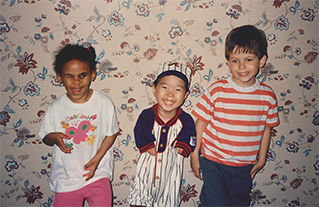
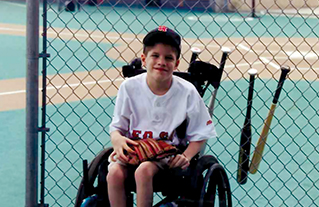
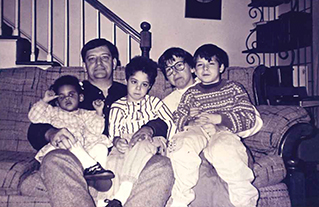
A Foundation to Lead: the Auburn Law Society
A student club started more than 60 years ago has had a far-reaching impact on the state of Alabama.
The Life of George McMillan ’66
From student government president to lieutenant governor and music festival empresario, George McMillan’s life of public service had an outsized impact on the state of Alabama.
An Eye for Action
From the mound to the mountain, Blake Gordon ’03 has captured life on the edge.
A Foundation to Lead: the Auburn Law Society
A student club started more than 60 years ago has had a far-reaching impact on the state of Alabama.
The Life of George McMillan ’66
From student government president to lieutenant governor and music festival empresario, George McMillan’s life of public service had an outsized impact on the state of Alabama.
An Eye for Action
From the mound to the mountain, Blake Gordon ’03 has captured life on the edge.
